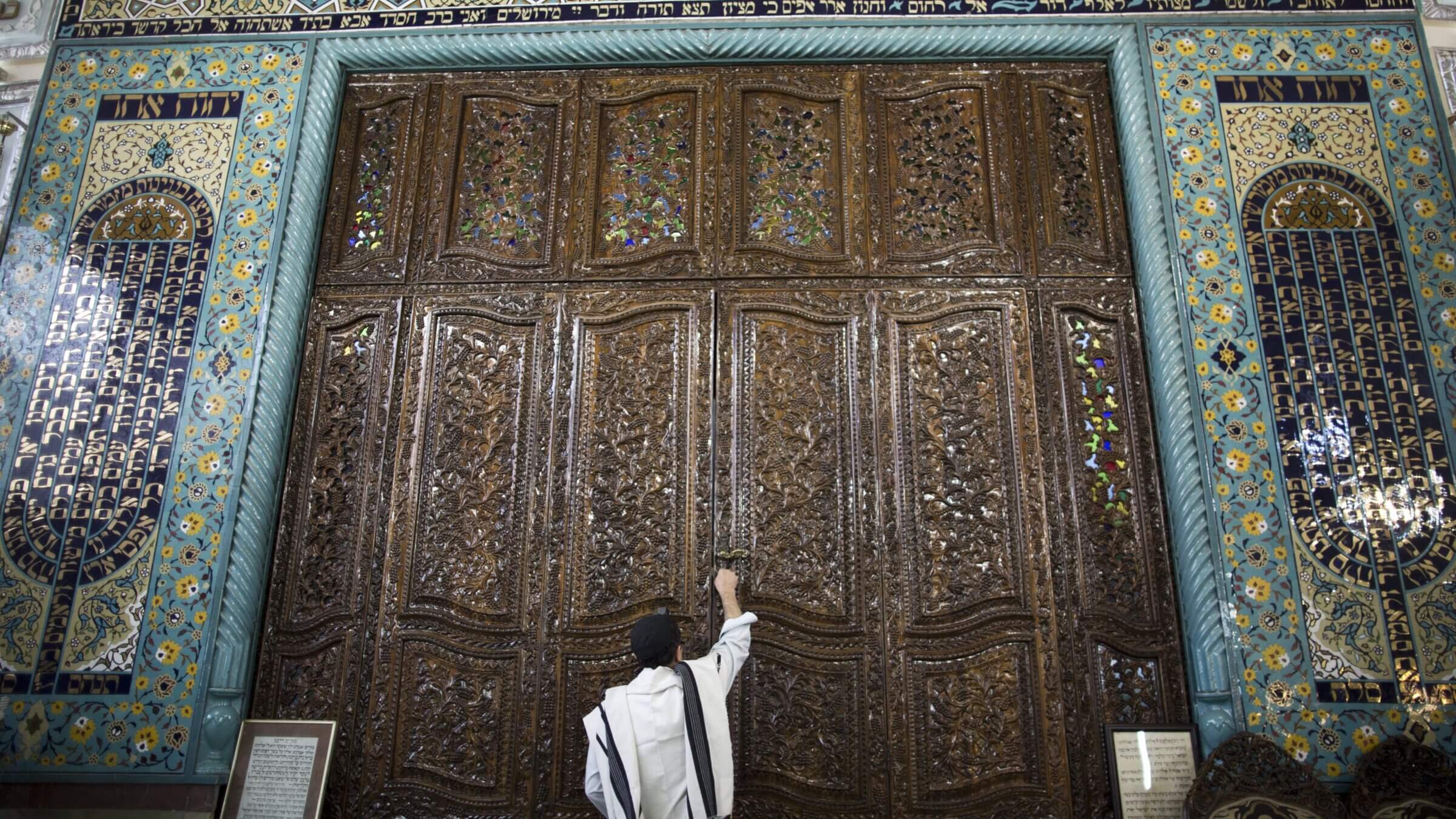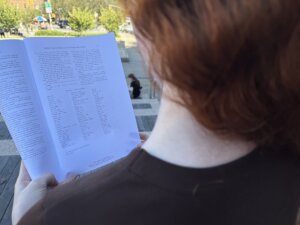Could dementia be the key to saving endangered Jewish languages?
Sometimes when people’s short-term memories begin to falter, they recall the first languages they learned

Inside the Youssef Abad synagogue in Tehran. Photo by Getty Images
One day, when Sabrina Hakim was out for a walk with her father, he started speaking a language she could not understand.
Sabrina figured he must be speaking Judeo-Kashi, a variety of Judeo-Iranian. Her father spoke this language as a child in the Iranian city of Kashan before he moved to the capital, Tehran. Since Jewish people haven’t lived in Kashan in decades, at least not in large numbers, the language “faces possible extinction,” according to Rutgers University linguist Habib Borjian.
Sabrina felt that in order to best care for her father, she had to learn this language. “I would just ask him questions, like, how do you say ‘Are you hungry?’ How do you say ‘I’m tired?’” she told me. “I was asking questions about words or phrases that we could use in his care.”

As time went by, her interest in Kashi evolved from purely practical to cultural. She started scrawling notes on the backs of receipts, and now, Sabrina says she has some 200 pages of notes from conversations with her dad, and she is helping to create a dictionary of the language.
Sabrina’s father, who died in February, is one example of someone whose dementia helped his descendants work with professional linguists to preserve a rare Jewish language. Since dementia affects shorter-term memory more than longer-term memory, it’s not unusual for multilingual people with dementia to begin speaking the language they learned first. As a 2009 study put it, “the language with the best recovery may be the earliest acquired language, the language of greater use, or the language spoken in the patient’s environment.”
Sarah Bunin Benor, a linguist and the director of Hebrew Union College’s Jewish Language Project, said that, while she has long been aware of this phenomenon, she has noticed it most recently with speakers of Judeo-Iranian languages. Historically speaking, that makes sense: In the mid-20th century, when people who are now elderly were children or young adults, many Jews from small cities all across Iran moved to Tehran, oftentimes to avoid antisemitism or enhance economic opportunities.
In Tehran, these people might have spoken their hometown language with their families, but standard Farsi with pretty much everyone else. They had also studied Torah and knew some Hebrew. But even as their brains held room for three languages — and later, when they fled Iran altogether, for yet a fourth language in the country where they wound up — those hometown languages remained deeply rooted in their minds.
Ashton, an 18-year-old from Great Neck, New York, had always been close with his grandmother, Mommy Po-Po, who began showing signs of dementia more than a year ago. (Ashton requested to be identified only by his first name so as to keep the details of his grandmother’s condition private).
Mommy Po-Po was born around 1939 in the small Iranian city of Tuyserkan in Hamadan province. Though she later moved to Tehran, she continued speaking Judeo-Tuyserkani, a language Borjian told me is at even greater risk of extinction than Judeo-Kashi.
Ashton’s aunt and Mommy Po-Po’s youngest child, Dina, told me that her mother usually speaks Judeo-Tuyserkani when she’s confused. In the last few months, Dina said, “whenever she talks to me, she feels that we live still in Tuyserkan, and I’m one of her sisters.”
Dina thinks memories of Tuyserkan comfort her mother. “I think she likes to go back there, when everything is OK, when my father was alive, when her father was alive, when she had her mother next to her,” she said. “I think she feels warmer when she thinks about back then.”
Around the same time that his grandmother’s illness was worsening, Ashton got in touch with Borjian, who was studying Judeo-Tuyserkani but didn’t know anyone who actually spoke it. “He gave me a huge list of words, and he said please translate all these” into Tuyserkani, Ashton said. He worked with his great-aunts, who still live in Iran, to get the words translated.
Now, Ashton, like Sabrina, is creating a dictionary. He has also started recording interviews with Mommy Po-Po, which he hopes to use in a documentary. Ashton “speaks better than me in Farsi and Tuyserkani,” Dina said.
Sabrina has also gotten praise from her family about her new language skills.
At first, when she started speaking Kashi with him, he might respond in Farsi, “een chert-o-perta chiye?” What’s all this gibberish? “My accent was so bad,” Sabrina said. But as time went by, her Kashi became more and more comprehensible. “Maybe about a month before he passed, one time I was saying something, and he said, ‘where did you learn to speak Kashi? You’ve never been to Kashan.’”
Of course, he’s the one who taught it to her.
















